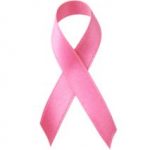 Breast cancer is the most common non-skin cancer in females in the United States and the second most common cause of cancer death in women. One in eight women will develop the disease at some point in her lifetime. Although there are several risk factors you can’t control, such as age, family history and race, there are many steps you can take to reduce your risk.
Breast cancer is the most common non-skin cancer in females in the United States and the second most common cause of cancer death in women. One in eight women will develop the disease at some point in her lifetime. Although there are several risk factors you can’t control, such as age, family history and race, there are many steps you can take to reduce your risk.
Maintain a Healthy Weight. Being overweight or obese, especially after menopause, has been linked to an increased risk of breast cancer. Exercising is one way that can help you maintain a healthy weight, and growing evidence suggests that regular physical activity may keep cancer at bay. For most healthy adults, the Department of Health and Human Services recommends at least 150 minutes a week of moderate aerobic activity or 75 minutes of vigorous aerobic activity weekly, plus strength training at least twice a week.
Limit alcohol. Habitual alcohol consumption has long been linked to a greater risk of developing breast cancer, particularly for younger women who have yet to have their first child. New research from the Harvard Medical School shows that the more alcohol a female drinks between her first menstrual cycle and her first full-term pregnancy, the higher her risk of developing the disease. If you choose to drink alcohol, limit yourself to no more than one drink a day.
Don’t smoke. Developing breast cancer is just one of the many negative health effects of smoking. Accumulating evidence suggests that there is an even higher risk for premenopausal women. If you don’t smoke, don’t start. If you do smoke, use every resource you can find to help you quit. Secondhand smoke may also pose a threat to non-smokers. Reduce your exposure as much as possible; choose smoke-free restaurants and avoid indoor public places that allow smoking. If you work in a smoke-filled work environment, ask your employer permission to increase ventilation where smoking takes place by opening windows or using exhaust fans.
Limit the use of hormone therapy. Taking combination hormone therapy for more than three years may increase your risk of developing breast cancer. Women taking hormone therapy for menopausal symptoms should ask their doctor if it’s possible to manage symptoms without the use of hormones. If hormone therapy is necessary, patients should use the lowest dose possible.
Breast-feed. Among the many benefits that breastfeeding pose for you and your baby, studies that show breastfeeding may reduce your chances of getting breast cancer. The longer you breastfeed, the greater the protective benefits have been shown.
Get Screened. Lastly, perhaps the greatest preventative measure you can take against breast cancer is committing yourself to regular mammograms and screenings. If you don’t already, perform monthly breast self-exams. Although they should not replace screening mammograms, breast self exams allow you to become familiar with the normal feel and appearance of your breasts, so that you are able to notice changes easier. Beginning at age 40, schedule annual mammograms. It is important, however, to discuss your individual risk factors with your doctor, including any family history of breast cancer, as this may influence the exact timing and type of breast cancer screening that you may need. Breast cancer is often found on a mammogram years before a lump is felt. Early detection is key in successful survival outcomes. When caught in its earliest stages, breast cancer has a 98 percent likelihood of being cured.
By Kathleen Lambert, MD, Georgia Cancer Specialists